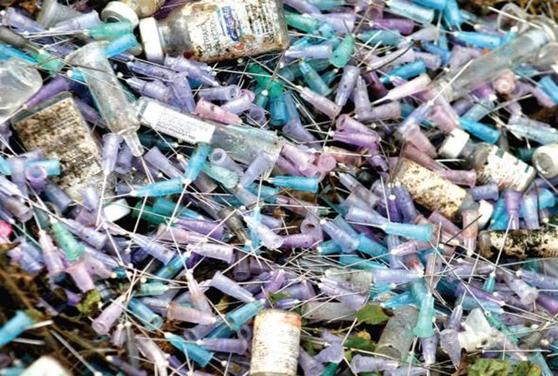
Investing In Africa – Tackling Medical Waste
It is widely known that waste generated by health care activities includes a broad range of materials, from used needles and syringes to soiled dressings, body parts, diagnostic samples, blood, chemicals, pharmaceuticals, medical devices and radioactive materials. Poor management of health care waste potentially exposes health care workers, patients and the community at large to infection, toxic effects and potential injury, and it also risks polluting the environment.
According to World Health Organisation (WHO), it is essential that all medical waste materials are segregated at the point of generation, appropriately treated and disposed of safely – a recommendation that has begun its journey towards legislation in several African countries.
Sharps waste, although produced in small quantities, is highly infectious. Contaminated needles and syringes represent a particular threat and may be scavenged from informal waste areas and dump sites and be reused. According to the latest WHO estimates, needle stick injuries (NSI’s) with contaminated syringes caused:
•21 million Hepatitis B virus (HBV) infections (32% of all new infections);
• 2 million Hepatitis C virus (HCV) infections (40% of all new infections);
•260 000 HIV infections (5% of all new infections).
Epidemiological studies indicate that a person who experiences one needle-stick injury from a needle used on an infected source patient has risks of 30%, 1.8%, and 0.3% respectively to become infected with HBV, HCV and HIV. The results of a WHO assessment conducted in 22 developing countries showed that the proportion of healthcare facilities that do not use proper waste disposal methods ranges from 18% to 64%.
The figures above represent a stark warning that, in emerging markets and in Africa especially, medical waste needs to be appropriately contained, collected, transported, treated and disposed of. With a current medical waste market share exceeding 25%, Averda’s investments in South African medical waste treatment and disposal sector highlight this global waste management organisation’s commitment to tackling the complex medical waste issues that negatively impact the African Continent’s health and development aspects.
Treating in excess of 600 tons of medical waste a month, with a presence in five major South African cities and employing a workforce of over 2,500 people, having also recently expanded its operations in Gabon, Congo and Morocco, Averda’s pledge to the African continent and its developing countries is clearly visible and making a lasting positive impact.
Ms Heidi Ford, National Operations & Compliance Manager with Averda Healthcare South Africa, said: “For the South African medical waste market, Averda took a more holistic approach to growth and expansion — we identified new business opportunities, we extended our existing customer relationships and we also undertook an innovative approach to conventional business models. Africa is an exciting place to do business, to invest in the untapped potential of the people and their culture and, most importantly, to share your knowledge and business know-how to drive growth for and investment in the local communities and business”.



























